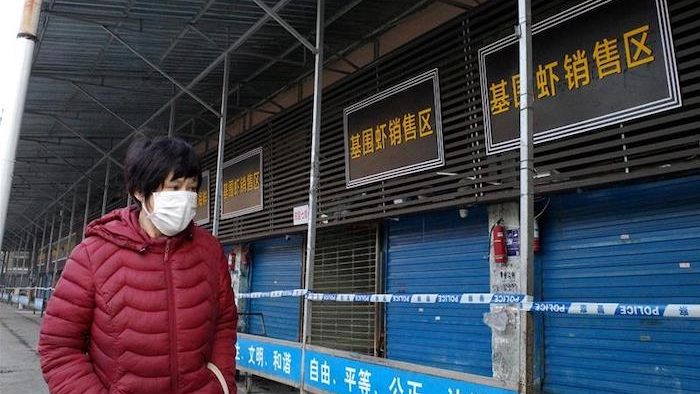EMRAH ATAR
 A new year usually is welcomed as a time of joy and opimism, however 2020 seems to have bucked that trend. 2020 began with the United States announcing that Qassem Suleimani, commander of the Iranian Quds Forces, and Abu Mahdi al-Muhandis, a close Suleimani associate, were killed in an attack at Baghdad’s International Airport. The killing of Suleimani, sparked fears of a conflict between the US and Iran. Three days of mourning were declared in Iran, and a vow of retribution was taken against the United States. Several days later Iran ordered an attack on US forces in Iraq. Later that same night, a Ukrainian Airlines Boeing 737 passenger plane was accidentally shot down by Iran shortly after takeoff. There were no survivors. On top of that, the Iranian Government has announced that it will continue to enrich uranium breaking its 2015 nuclear agreement. This event can be seen as the opening act of a month of fear and misery that coincided with the new year. And, when viewing it alongside other events, both natural and manmade, makes for sober reading.
A new year usually is welcomed as a time of joy and opimism, however 2020 seems to have bucked that trend. 2020 began with the United States announcing that Qassem Suleimani, commander of the Iranian Quds Forces, and Abu Mahdi al-Muhandis, a close Suleimani associate, were killed in an attack at Baghdad’s International Airport. The killing of Suleimani, sparked fears of a conflict between the US and Iran. Three days of mourning were declared in Iran, and a vow of retribution was taken against the United States. Several days later Iran ordered an attack on US forces in Iraq. Later that same night, a Ukrainian Airlines Boeing 737 passenger plane was accidentally shot down by Iran shortly after takeoff. There were no survivors. On top of that, the Iranian Government has announced that it will continue to enrich uranium breaking its 2015 nuclear agreement. This event can be seen as the opening act of a month of fear and misery that coincided with the new year. And, when viewing it alongside other events, both natural and manmade, makes for sober reading.
The Arab Spring, which started in 2011, and the Syrian crisis that followed it, continues to displace people in the midst of the military operations that are happening in Idlib province. Turkey has been a major transit point for migrants trying to reach Europe. On January 12, there was another try to reach Europe from near Cesme in western Turkey. Eleven people, eight of them children, were killed when a boat carrying migrants sank off the coast of Cesme, Turkey. Eight migrants were rescued alive by Coast Guard crews. Meanwhile, the domestic war in Libya continues despite efforts by the international community to negotiate a ceasefire in Berlin.
US President Donald Trump met with Israeli Prime Minister Benjamin Netanyahu to unveil a “Deal of the Century” plan. According to the plan, a period of 4 years is envisaged for Palestine to become an independent state. It takes no great analysis to judge that the Palestinian leadership will reject the “deal of the century” as they were not consulted over the plan. Earlier, the United States had moved the embassy to Jerusalem and then recognised the Golan Heights and Israeli settlements. America’s pro-Israel approaches have likely conntributed to the growing atmosphere of unrest in the region.
Political issues aside, natural disasters have also struck worldwide. 41 people lost their lives in a 6.8 magnitude earthquake in Turkey’s Elazığ province. Furthermore, a 7.7 magnitude earthquake occurred between Jamaica and Cuba, one of the strongest on record in the Caribbean. Australia continues to experience natural disasters at a staggering level – facing flooding, sandstorms and walnut-sized hail following wildfires, where more than 6 million hectares have burned.
Simultaneously, 53 people lost their lives in floods and landslides in Brazil after heavy rains started in the southeastern state of Minas Gerais. In Pakistan. 108 people were killed and 176 injured in an avalanche caused by heavy snowfall. Heavy rains in Indonesia caused floods in Jakarta, Depok, Bekasi, Tangerang and Bogor cities; at least 21 people died in this case, and thousands were evacuated.
Perhaps the most considerable issue of early 2020 is the Coronavirus outbreak in China. The suspected origin, Wuhan, has been closed down, as have multiple other cities which are under partial or full lockdown. Many countries are making efforts to bring back their citizens living in China, and simultaneously international flights are being downscaled or cancelled alltogther until the situation improves. The spread of the virus has caused fear throughout the world with cases now reported in scores of countries.
Due to the issues mentioned in this short article, many people are perhaps already eager for 2020 to end. What is worse is that the bulk of these issues have political and social elements and could perhaps be solved with more concerted efforts over public health, climate change and diplomacy at the international level as the decade continues.
No comments:
Post a Comment